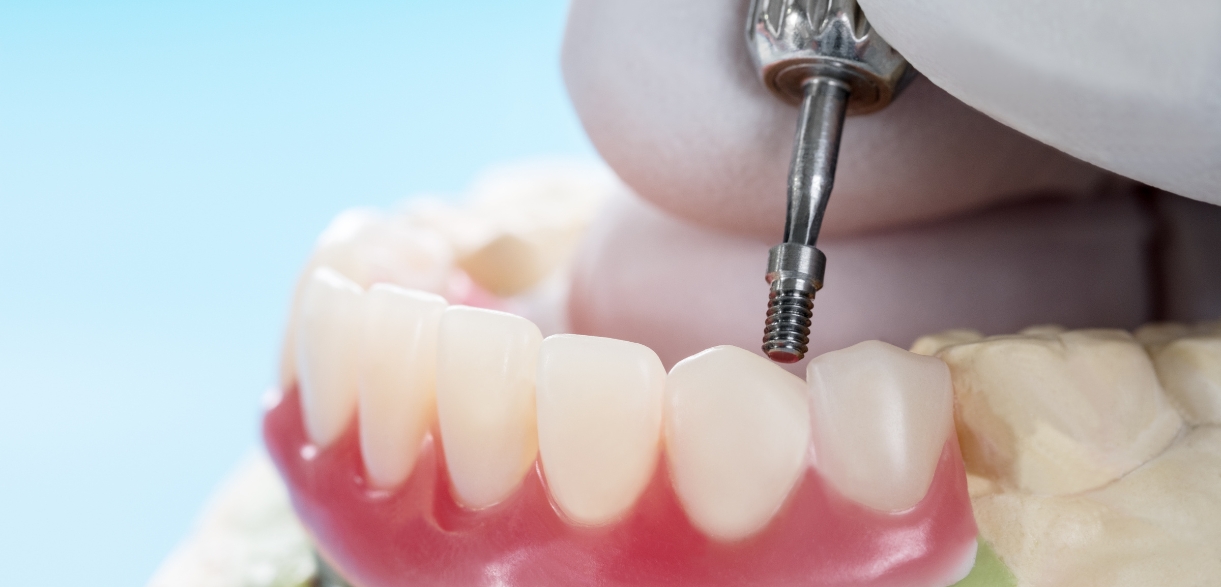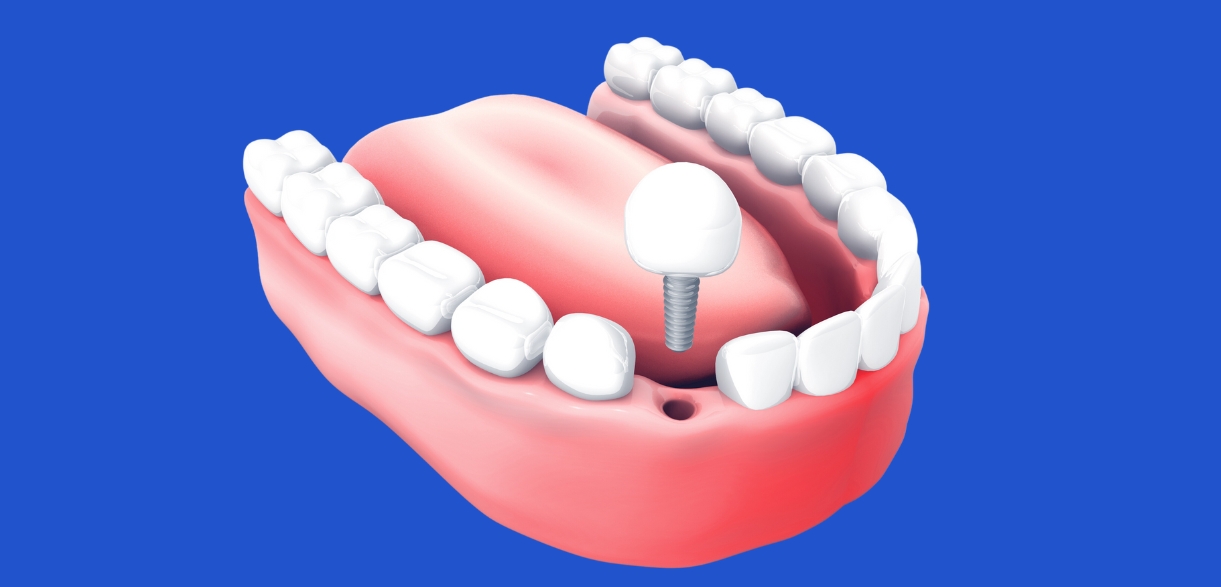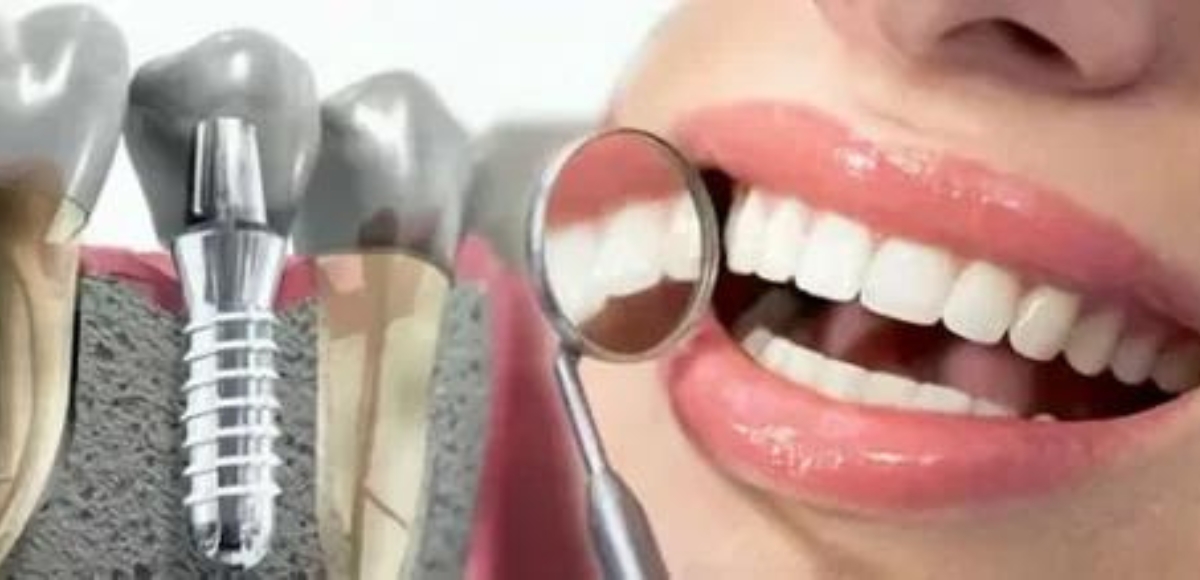Brentwood: (615) 235-1966

Is a Dental Implant for Molars the Suitable Choice for You?
Brentwood, TN

Molars, those powerful teeth at the back of your mouth, are the unsung heroes of a healthy smile. They take on the tough task of grinding and crushing food, allowing you to enjoy a variety of textures and flavors. But what happens when a molar is missing? Chewing becomes a challenge, and your smile can feel incomplete. Dental implants offer a revolutionary solution for replacing missing teeth. But are they the right choice for molars? This blog post delves into the world of molar implants, exploring their benefits, candidacy factors, and the entire process, from consultation to enjoying a restored smile.
Why Molars Matter: Understanding Their Crucial Role
Molars, often overshadowed by their pearly white neighbors in the front, deserve a standing ovation. These unsung heroes of the mouth play a crucial role in our well-being, far beyond just aesthetics. Let’s delve into why molars matter:
The Powerhouse of Chewing
Grinding Champions
Unlike their sharp-edged front-tooth counterparts, molars boast broad, flat surfaces with multiple cusps and ridges. These act like natural grinding stones, effectively pulverizing tough foods like nuts, vegetables, and meat. This thorough breakdown is essential for proper digestion, as it maximizes the surface area of food particles. Also, it allows digestive enzymes to work their magic and extract all the vital nutrients.
Force Distribution Dynamos
Molars aren’t just about brute strength. They also act as pressure distributors, ensuring the chewing force generated isn’t concentrated on a few teeth. By distributing the force evenly throughout the jaw, molars protect our other teeth from excessive wear and tear.
Beyond Chewing: The Multifaceted Molar
Speech Supporters: Molars play a behind-the-scenes role in clear speech. The specific positioning and interaction of our tongues with our molars help us form certain sounds. Any compromise in molar function can impact speech clarity.
Facial Structure Stabilizers: Molars are the anchors at the back of the jaw, providing crucial support for the facial structure. Their strong roots embedded in the jawbone help maintain a youthful appearance by preventing facial collapse and sagging.
Missing Molar? The Impact and Potential Consequences
A missing molar can have a significant ripple effect on your oral health and overall well-being. Here’s a deeper look at the potential consequences:
Chewing Difficulties
- Reduced Grinding Power: Molars are designed to grind food into smaller, easily digestible particles. Without them, chewing becomes less efficient, requiring more effort and time.
- Uneven Chewing: You might find yourself favoring one side of your mouth to compensate for the missing molar. This can lead to uneven wear and tear on your remaining teeth.
- Food Avoidance: Chewing certain tough or fibrous foods may become uncomfortable or even impossible, forcing you to restrict your diet.
Digestive Issues
Improperly chewed food puts extra strain on your digestive system. Large food particles take longer to break down, which can lead to heartburn. Large food particles can irritate the lining of your esophagus, causing heartburn and acid reflux. Incomplete digestion can lead to bloating and gas. If your body can’t properly break down food, it may struggle to absorb essential nutrients.
Jawbone Deterioration
- Bone Loss: When a tooth is missing, the jawbone beneath it no longer receives the stimulation it needs to stay healthy. This can lead to bone loss in the area, which can affect the stability of surrounding teeth and make them more susceptible to future problems.
- Facial Structure Changes: Over time, bone loss in the jaw can lead to subtle changes in your facial structure, such as a sunken appearance in the area of the missing molar.
Shifting Teeth
- Domino Effect: The remaining teeth naturally want to close any gaps in your smile. Without a molar in place, surrounding teeth may begin to shift towards the space.
- Misalignment: Shifting teeth can lead to overcrowding or misalignment, which can create additional problems like an increased risk of tooth decay. Misaligned teeth can be harder to clean properly, increasing the risk of cavities and gum disease. Also, it can put stress on the temporomandibular joint (TMJ), which can lead to pain, headaches, and jaw dysfunction.
Dental Implants: A Boon for Missing Molars
Dental implants offer a revolutionary solution for replacing missing molars, bringing significant advantages to your oral health, function, and confidence. Here’s a deeper dive into how implants can transform your smile:
Restored Bite and Chewing Power
Missing molars can significantly impact your ability to chew effectively, leading to dietary limitations and digestive issues. Dental implants perfectly replicate the natural root structure of a molar, restoring your full chewing power. You’ll be able to enjoy a wider variety of foods comfortably, from crunchy vegetables to tough meats, without worrying about discomfort or pain.
Enhanced Jawbone Health
Molars play a crucial role in stimulating the jawbone. When a molar is missing, the bone in that area begins to deteriorate due to lack of stimulation. Dental implants act like natural tooth roots, preventing bone loss and maintaining your facial structure. This is especially important for long-term oral health and preventing future complications.
Natural Aesthetics and Confidence Boost
Missing molars can leave unsightly gaps in your smile, affecting your confidence and overall well-being. Dental implants are custom-designed to blend with your existing teeth seamlessly. The crown perfectly replicates the shape, size, and color of a natural molar, giving you a complete and natural-looking smile. This can significantly boost your confidence and self-esteem when interacting with others.
Improved Speech Clarity
Molars play a role in proper speech articulation. Missing molars can sometimes lead to slurred speech or difficulty pronouncing certain sounds. By restoring the missing tooth structure and function, dental implants can significantly improve your speech clarity and ensure clear communication.
A Long-Term Investment in Oral Health
Unlike dentures or bridges that may require replacement over time, dental implants are a long-term solution. With proper care and regular dental checkups, implants can last a lifetime. This makes them a cost-effective investment in your oral health and overall well-being.
Are You a Candidate for Molar Implants?
Here are some of the factors that will help you determine if molar implants are the best choice for you.
- General health: You should be in good overall health to undergo the implant surgery. This means having any underlying medical conditions well-controlled, such as diabetes, heart disease, or autoimmune disorders. These conditions can affect healing and increase the risk of complications.
- Medical history: Be upfront with your dentist about any past or present medical conditions and medications you take. Certain medications, like those that suppress the immune system or anticoagulants (blood thinners), need to be adjusted during the implant process.
- Bone density: Sufficient bone density in the area where the molar implant will be placed is crucial for successful osseointegration, the fusion of the implant with the jawbone. Molars, especially wisdom teeth, have a larger surface area for chewing, so adequate bone support is even more critical.
- Bone loss: If you’ve suffered bone loss due to missing teeth for a long time or periodontal disease, you might not have enough bone for implant placement. However, all is not lost! Bone grafting procedures can be performed to rebuild the jawbone and create a suitable foundation for the implant.
- Healthy gums: Healthy gums free from infection and inflammation (gingivitis or periodontitis) are essential for successful implant placement and long-term success. The implant relies on healthy gum tissue to form a tight seal around it. This prevents bacteria from entering the implant site and causing peri-implantitis.
- Smoking: Smoking significantly hinders healing and increases the risk of implant failure. Smoking constricts blood vessels, reducing blood flow to the implant site, which is vital for healing and osseointegration. It’s highly recommended to quit smoking before undergoing implant surgery.
Dental implants can be an excellent choice for replacing missing molars, particularly for those missing first molars or experiencing difficulty chewing. They offer superior durability, functionality, and aesthetics compared to other replacement options. However, consulting a dentist to assess your situation is crucial. Factors like jawbone health, overall health, and budget will influence the suitability of molar implants. Discuss the pros and cons with your dentist to determine if a dental implant is the right course of action for your missing molar.





